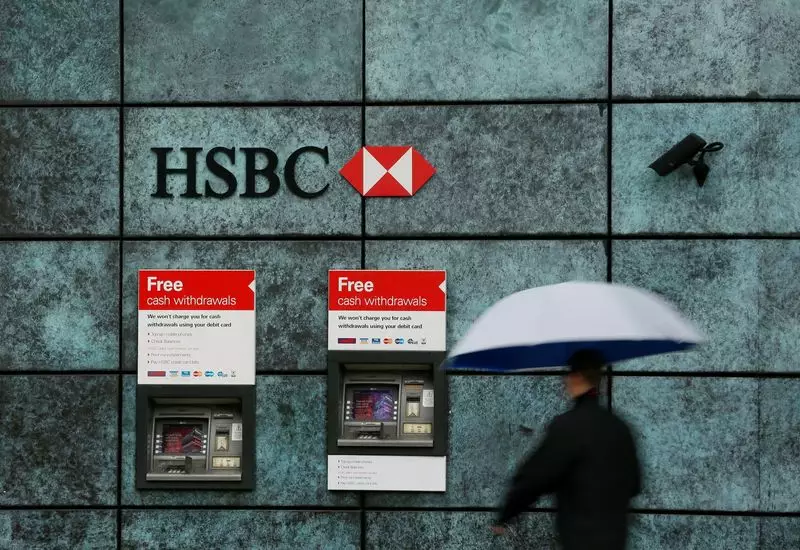HSBC Holdings has showcased a robust profit just as it embarks on a comprehensive restructuring plan to navigate the complexities of the contemporary financial landscape. In the third quarter, the bank recorded a profit of $8.5 billion, reflecting a 10% increase from the same period last year and exceeding market expectations of $7.6 billion. This impressive outcome is largely attributed to rising revenues from wealth management and wholesale banking sectors. Emerging market dynamics and a cautious rate-cut approach have also bolstered HSBC’s financial performance, enabling the banking giant to thrive despite a challenging environment.
The positive market response was palpable, with HSBC shares climbing by 3.7% in Hong Kong, reaching HK$71.60, the highest level since August 2018. Investors appear optimistic not just about current earnings, but also the potential that lies within the bank’s forthcoming restructuring efforts. Additionally, HSBC announced a significant $3 billion share buyback plan alongside a preceding $6 billion buyback initiated earlier this year, further demonstrating its commitment to returning capital to shareholders.
In light of new leadership under CEO Georges Elhedery, the bank has opened the floor to discussions regarding a strategic overhaul designed to enhance operational efficiency and reduce costs. This restructuring includes merging certain operations and redefining its geographical focus, bifurcating its operations into Eastern and Western segments. Such moves are especially pertinent as banks globally brace themselves for an era characterized by lower interest rates and fluctuating market conditions.
Elhedery, who stepped into the CEO role just last month, emphasized the urgency of implementing these strategic changes, stating, “We will begin to implement these plans immediately.” However, stakeholders will have to wait until February next year for a comprehensive view of the impact these changes may have on the bank’s operational footprint and financial health. This period of reckoning will be crucial for both investors and analysts eager for clarity on how these strategies will translate into tangible financial outcomes.
While analysts commend HSBC for what they describe as a “solid” set of earnings, skepticism looms over the lack of clarity regarding the cost implications of the new strategies. Michael Makdad, a Senior Equity Analyst at Morningstar, suggests a pronounced focus in upcoming discussions on the structural overhaul rather than solely the bank’s quarterly results. The issues at hand include how the restructuring process will yield efficiencies and whether it can realistically align with HSBC’s ambition of maintaining mid-teens return on tangible equity for the next two years.
Analysts also noted that the evolving landscape of interest rates could significantly influence HSBC’s earnings in the near future. The mention of “volatile” conditions indicates that the bank must remain agile and responsive to shifting dynamics in the global financial markets.
In terms of specific revenue performance, HSBC enjoyed a 5% year-over-year increase, bringing quarterly revenues to $17 billion. This growth has been partially fueled by robust customer engagement with wealth products amid volatile market conditions. The markets business thrived, particularly in foreign exchange, equities, and global debt sectors. In contrast to its U.S. and European counterparts, which have reported mixed earnings, HSBC’s ability to generate revenue growth underscores its potential to remain resilient in a tightening monetary environment.
As global central banks, including the U.S. Federal Reserve, signal a shift in interest rate strategies, the implications for major banks like HSBC are profound. Many institutions, like Barclays, are already adapting by optimizing income sources despite rate declines. HSBC’s proactive measures, including its reinvigorated focus on restructuring, may place it in a favorable position to navigate these financial waters.
HSBC’s recent earnings report indicates not just a successful quarter, but opens a dialogue about the future direction of the institution amidst evolving financial landscapes and leadership changes. As the bank prepares to unveil its detailed restructuring plans in the coming months, stakeholders will closely monitor these developments, hoping they will bolster HSBC’s operational efficiency and return on investment. In an era of rapid change for financial institutions, adaptability may become the key factor distinguishing success from stagnation.

